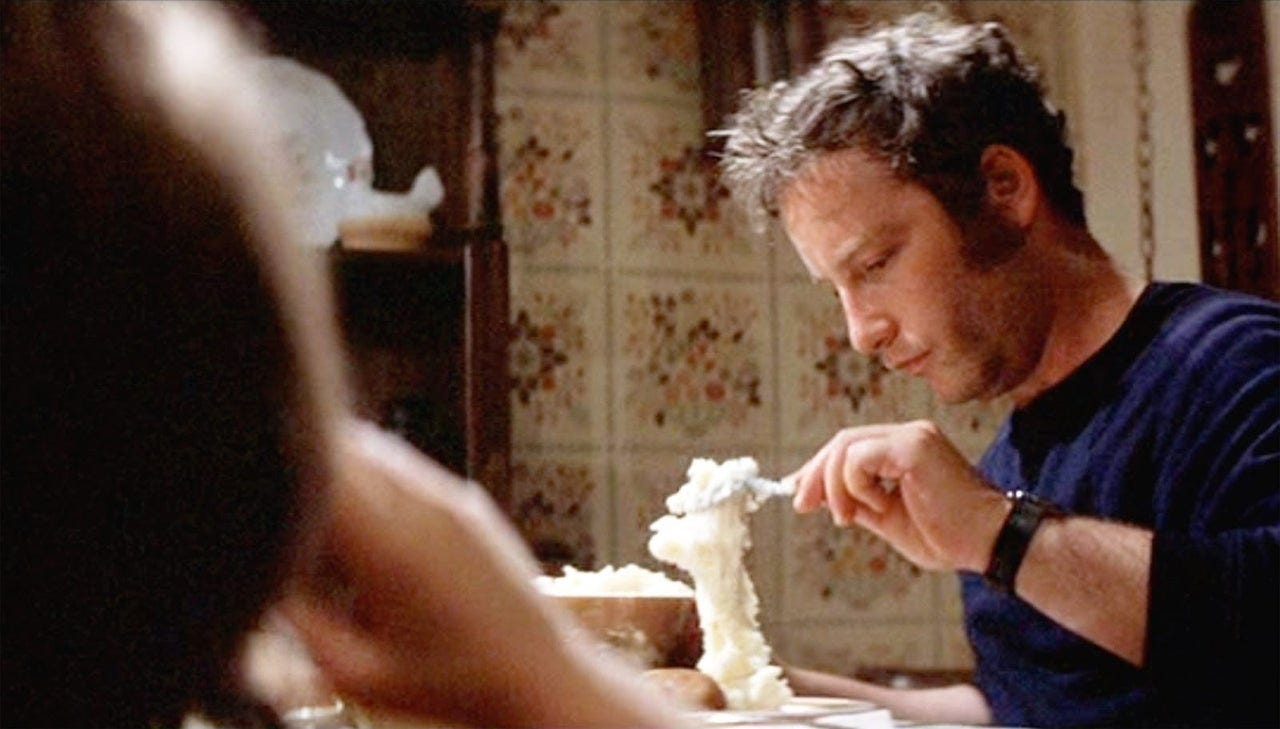The Cry of the Missing "Something"
Why we're all anxious and what we are looking for.
Most of the time, we are on autopilot. Things occur, and we react. We have developed habits, routines, and rituals that help us normalize and navigate the series of events that constitute day-to-day living. Occasionally, something out of the ordinary—a crisis or an unusually joyous moment—shakes up the status quo and often prods us into a deeper mode of awareness…of something. After a brief interlude, the something is tucked away and forgotten as the familiar routine reasserts itself and the autopilot reengages. Nonetheless, a certain emotional residue may remain—what was that thing that I was feeling? What did it mean?
The grind and the routine shield us from the potentially destabilizing realizations we might often have of the sheer freakishness of human existence. To us, it seems perfectly normal that a baby can live underwater in another person’s body for three-quarters of a year. We don’t think to wonder how it is that the disturbances of the air we call music could possibly have such a profound effect on our emotional states. Nor do we spend much time mulling over things like our utter dependence on an invisible gas that we need to inhale unceasingly in order to not die. It all just kinda…is.
There’s a now iconic series of scenes in the film Interstellar when Mackenzie Foy’s character Murph stares intently at the well-stocked bookcase in their dusty rural home. For various reasons, she believes that a “ghost” has been trying to communicate with her through it. Her scientist father, Cooper, is initially dismissive but becomes intrigued. He begins to notice…something.
Image: wired.com
There’s something about the way the dust wafts through the shafts of light and the odd lines it makes when it lands on the floor. The pattern feels atypical somehow. He could simply shrug his shoulders and move on, but he doesn’t. He sits before it and ponders while his father, Donald, mockingly instructs him “to clean it up when you’re done praying to it.” What does it mean? As it turned out, it was just about the most important thing on Earth—a binary pattern of coordinates that led them to discover the hidden space program that would eventually enable Cooper and Murph to save their dying world.
Thirty-seven years earlier, Steven Spielberg was hoping to cast actor Steve McQueen in the lead role in another (soon-to-be) classic sci-fi film, Close Encounters of the Third Kind. In the end, Richard Dreyfuss got the nod as McQueen was not able to cry on command. The quest for the hard-to-identify “something” within Dreyfuss’s character Roy Neary took the form of the need to identify and eventually arrive at an unknown place (which turned out to be Devils Tower near Moorcroft Wyoming). This need had been causing him to act very strangely.
There’s a remarkable scene at the family dinner table. As his kids and wife look on in confusion, anger, and fear, Roy scoops heap after heap of mashed potatoes onto his plate and begins sculpting them with the intensity of Michelangelo. When he stops to look up, he realizes that his family thinks he has lost his mind and commences his high-value crying. He attempts to reassure them but adds, “I can’t describe it—what I’m feeling and what I’m thinking.” Pointing at the mushy white tower, he tells them, “this means something.” He was right. Like the bookshelf, It too was a message.
Most of the time, we are distracted—and happy about it. The busyness, the deadlines, and the running around are good diversions from having to contend with the “missing something.” Nonetheless, I assert that we are all good and aware of it. Like Murph Cooper and Roy Neary, we have a niggling sense that things just don’t add up. That this can’t be it. That there is something important that we’re missing. Once in a while, we have a moment. We may look at a tree or a flower or a baby or examine our deepest feelings and think, “this means something.”
Image: ign.com
Writer Sarah Wilson pegs this silent search as the root of our anxiety.
“When the pill or the guru or the ‘fresh start’ doesn’t fix the problem and the buzz (the cry of the missing Something Else) is still heard through the chemical fug, you go out even further to seek more answers—different pills, different experts…you’re like a junkie. Or a shopper hoping the next throw cushion or handbag or novelty ice-cube tray will give you that cozy feet-curled-under-you-on-a-lovely-soft-couch feeling you seek.”
But this is all nonsense and misdirection. Like with most things, avoidance only exacerbates the problem. What, then, does Wilson propose as the solution? Finding the Missing Something (transcendence, spirituality, ultimate consciousness, the One, the Infinite, God, et al.) is of paramount significance. And where should we begin to look?
“I’m wondering, can you see that this chase takes you further and further away from yourself? Can you see that it also takes the whole discussion away from the Something Else that you yearn for? Because you do kind of know that the peaceful, chilled knowing you’re after is to be found much closer to the trunk of the metaphorical tree.”






Adam, this piece of yours feels important. “It just is,” is kind of mantra for many people, perhaps most. Nothing - just is. But it’s hard to live life sensing the endless chain of cause and effect, especially when we’ve been told to clean up the “dust” that has so thoroughly captured our attention.
We search for Elysium, the lost Eden of our origins.